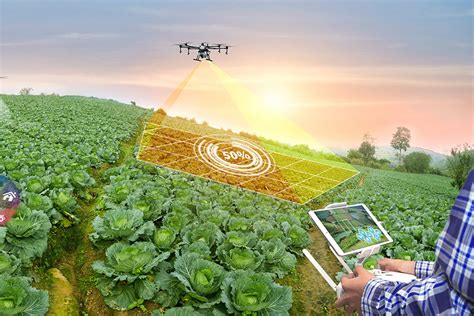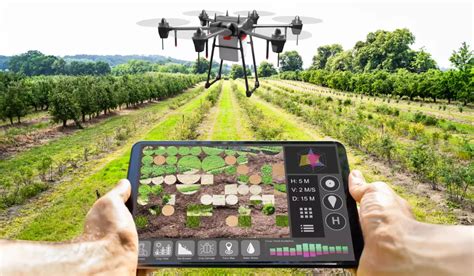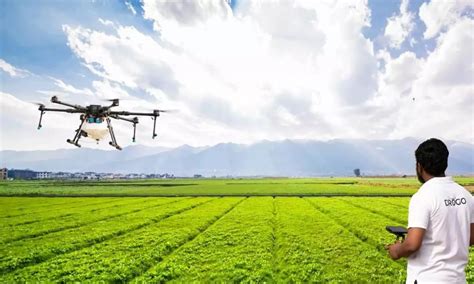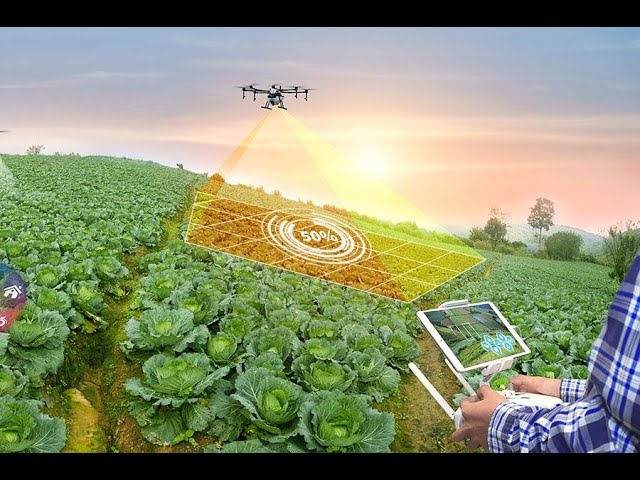In recent years, biotechnology has revolutionized agriculture, bringing forth transformative changes that are reshaping the way we grow food. From genetically modified crops that offer higher yields and resistance to pests, to the precision of CRISPR and gene editing, biotech farming is paving the way for more efficient and sustainable agricultural practices. This article explores the latest advances in biotech agriculture, including eco-friendly bio-pesticides and bio-fertilizers, drought-resistant crops that combat climate change, and the integration of smart farming technologies. As the demand for sustainable food production grows, these innovations hold the potential to address global challenges and secure the future of farming.
Explore this topic in-depth with zopmj.com
1. Genetically Modified Crops: Enhancements and Controversies
Genetically modified (GM) crops have been at the forefront of agricultural innovation, offering significant enhancements in yield, pest resistance, and nutritional content. These crops are engineered to possess desirable traits, such as increased tolerance to herbicides and improved resistance to pests, reducing the need for chemical inputs and promoting more efficient farming practices. Additionally, GM crops have been developed to enhance nutritional profiles, addressing malnutrition in regions where certain nutrients are scarce.
However, the adoption of GM crops is not without controversy. Critics raise concerns about the long-term environmental impacts, such as the potential for crossbreeding with wild plants and the reduction of biodiversity. There are also debates about the safety of GM foods for human consumption and their impact on small-scale farmers who may become dependent on patented seeds from large biotech companies. Despite these controversies, the use of GM crops continues to grow, driven by the need to meet the global food demands of an increasing population.

2. CRISPR and Gene Editing: Precision Agriculture
CRISPR and gene editing technologies represent a groundbreaking leap forward in precision agriculture, allowing scientists to make targeted changes to the DNA of plants with unprecedented accuracy. Unlike traditional genetic modification, which involves the insertion of foreign genes, CRISPR enables precise edits to a plant’s existing genome, potentially enhancing desirable traits such as disease resistance, drought tolerance, and improved nutritional content without introducing new genetic material.
This level of precision opens up new possibilities for developing crops that can adapt to changing environmental conditions, reducing the reliance on chemical inputs and contributing to more sustainable farming practices. For example, gene editing has been used to create rice varieties with improved resistance to bacterial blight and wheat strains with higher yields in water-scarce regions.
However, the application of CRISPR in agriculture is still in its early stages, and it has sparked ethical and regulatory debates. Concerns include the potential for unintended consequences, the accessibility of the technology to small-scale farmers, and the long-term impacts on ecosystems. Despite these challenges, CRISPR and gene editing hold immense promise in advancing agricultural productivity and sustainability, making it a key tool in the future of farming.

3. Sustainable Farming Practices: Biotech Innovations
Sustainable farming practices are essential in addressing the environmental challenges posed by traditional agriculture, and biotechnology is playing a pivotal role in this transformation. Through innovative techniques, biotech is enabling more sustainable approaches that reduce environmental impact while maintaining or even increasing agricultural productivity.
One of the key innovations in this area is the development of crops that require fewer resources, such as water, fertilizers, and pesticides. For example, biotech has led to the creation of crops that can thrive in poor soils with minimal fertilizer, thereby reducing runoff and soil degradation. Additionally, crops engineered to be resistant to pests and diseases lessen the need for chemical pesticides, which can harm non-target species and pollute water sources.
Another significant advancement is the integration of biotech with conservation practices, such as crop rotation and cover cropping. These methods, combined with biotech solutions, improve soil health, increase biodiversity, and enhance carbon sequestration, making agriculture more resilient to climate change.
Furthermore, biotech innovations are enabling the development of bio-based products, such as biofuels and bioplastics, which offer sustainable alternatives to fossil fuels and traditional plastics. By promoting circular economies and reducing waste, these biotech-driven solutions contribute to a more sustainable agricultural system that can support growing populations while protecting the planet.

4. Bio-Pesticides and Bio-Fertilizers: Eco-Friendly Alternatives
Bio-pesticides and bio-fertilizers are emerging as eco-friendly alternatives to conventional chemical products, offering sustainable solutions to enhance crop production while minimizing environmental harm. Unlike synthetic chemicals, bio-pesticides are derived from natural materials such as bacteria, fungi, and plant extracts. These biological agents target specific pests, reducing the risk of collateral damage to beneficial insects, wildlife, and ecosystems. For instance, Bacillus thuringiensis (Bt), a widely used bio-pesticide, effectively controls insect pests without harming pollinators or other non-target species.
Similarly, bio-fertilizers harness natural processes to improve soil fertility and promote plant growth. These products typically contain living microorganisms that enhance nutrient availability, fix nitrogen, or stimulate root development. By improving soil health and reducing dependency on synthetic fertilizers, bio-fertilizers contribute to more sustainable and resilient agricultural systems. They also help mitigate environmental issues associated with chemical fertilizers, such as soil degradation, water pollution, and greenhouse gas emissions.
The adoption of bio-pesticides and bio-fertilizers is gaining momentum as farmers seek more sustainable and cost-effective alternatives. However, challenges remain, including the need for greater awareness, availability, and regulatory support to ensure their widespread use. Nonetheless, these bio-based solutions hold significant promise for advancing eco-friendly agriculture and protecting the environment for future generations.
5. Drought-Resistant Crops: Addressing Climate Change
Drought-resistant crops are becoming increasingly vital as climate change intensifies the frequency and severity of droughts worldwide. These crops are engineered or selectively bred to withstand prolonged periods of water scarcity, ensuring stable food production even in harsh conditions. Through biotechnology, scientists have developed crops that can maintain productivity with minimal water, making them crucial for agriculture in arid and semi-arid regions.
One approach to creating drought-resistant crops involves identifying and enhancing genes responsible for water efficiency and stress tolerance. For example, some genetically modified crops are designed to close their stomata—the pores on leaves—more quickly during drought, reducing water loss while still allowing photosynthesis. Other advances include breeding or engineering plants with deeper root systems that can access water stored further underground.
The development and adoption of drought-resistant crops offer a promising solution to food security challenges exacerbated by climate change. These crops not only help stabilize yields during droughts but also reduce the need for irrigation, conserving water resources and lowering costs for farmers. However, widespread implementation requires ongoing research, support from policymakers, and the acceptance of these crops by farmers and consumers alike. As climate change continues to challenge global agriculture, drought-resistant crops will be key to sustaining food production in vulnerable regions.
6. Smart Farming: Integration of Biotech and IoT
Smart farming represents the fusion of biotechnology and the Internet of Things (IoT), creating a new era of precision agriculture where data-driven decisions enhance efficiency and sustainability. By integrating biotech advancements with IoT devices, farmers can monitor and manage their crops and livestock with unprecedented accuracy, optimizing resources and reducing waste.
IoT devices, such as sensors and drones, collect real-time data on soil conditions, weather patterns, and crop health. This data is then analyzed to make informed decisions about irrigation, fertilization, and pest control. When combined with biotech innovations like genetically modified or gene-edited crops, smart farming enables tailored approaches to crop management, ensuring that each plant receives exactly what it needs to thrive.
For example, sensors can detect moisture levels in the soil, allowing farmers to irrigate only when necessary, conserving water. Similarly, drones equipped with imaging technology can identify early signs of disease or pest infestations, prompting timely interventions that minimize crop loss.
The integration of biotech and IoT in smart farming not only boosts productivity but also supports more sustainable agricultural practices. As the demand for food increases, smart farming offers a scalable solution to meet global food needs while minimizing environmental impact.
7. Future Trends in Biotech Agriculture
The future of biotech agriculture is set to transform the industry with a focus on enhancing sustainability, efficiency, and resilience. As technology advances, we can expect more refined gene-editing techniques, such as CRISPR, to drive innovations in crop development, creating varieties that are not only more productive but also better adapted to changing environmental conditions.
Emerging trends include the integration of artificial intelligence and machine learning to analyze agricultural data, predicting crop needs and optimizing resource use with greater precision. Additionally, advancements in synthetic biology are likely to lead to the development of new crop traits, such as enhanced nutrient profiles and improved resistance to a broader range of pests and diseases.
Vertical farming and lab-grown foods are also gaining traction, offering solutions to urban food production challenges and reducing the environmental footprint of traditional farming. As these technologies evolve, they will play a critical role in addressing global food security while minimizing the impact on natural ecosystems. The convergence of these innovations promises a future where agriculture is more adaptive, efficient, and sustainable.
The advancements in biotech agriculture are revolutionizing the way we approach food production, offering solutions to some of the most pressing challenges in farming. From genetically modified crops and CRISPR gene editing to sustainable practices with bio-pesticides and smart farming technologies, these innovations are paving the way for a more efficient and resilient agricultural system. As we move forward, the continued integration of these technologies will be crucial in meeting global food demands while addressing environmental concerns, ensuring a sustainable future for agriculture.
zopmj.com

